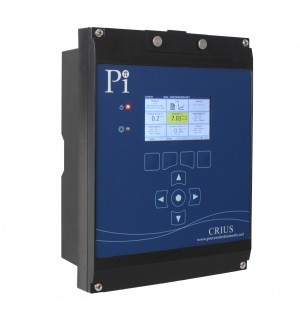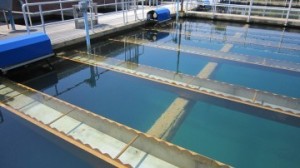The phrases ‘Water 4.0’, ‘Industry 4.0’, ‘Internet of Things’ and ‘SMART and DIGITAL’ are now commonly heard but what do they mean and where does Pi fit in?

Industry 4.0 relates to the concept that we are living through a 4th Industrial Revolution where factories will be as SMART as they can be. The main principles are based on:
- Interoperability
- Information Transparency
- Technical Assistance
- Decentralisation
Water 4.0 is how this technology and philosophy will be implemented/will affect the water industry. The Internet of Things refers to all devices we use all the time talking to each other and making their own decisions.
It is generally accepted that SMART refers to the increasing sophistication of equipment to make decentralised decisions, so it is this technology that allows for the implementation of Industry 4.0 or Water 4.0, and DIGITAL refers to its comms capability. For example, in 1990 a chlorine analyser measured chlorine in water, gave out a 4-20mA output proportional to the chlorine and a couple of relays.
In 2018 the CRIUS® HaloSense (fully Water 4.0 developed) can provide the 4-20mA output and relays, but also has multiple digital comms options (interoperability), has space for up to 16 sensors (information transparency), has wireless and wired internet access (technical assistance) and full PID capability with remote setpoint, i.e. another device can set the setpoint (decentralisation). Watch a 2 minute animated video about Pi’s CRIUS® controller below.
Any questions?
A CRIUS® plus Sensor equals…
- Free Chlorine Analyser (HaloSense)
- Total Chlorine Monitor (HaloSense)
- Chlorine Dioxide Analyser (DioSense)
- Ozone Monitor (OzoSense)
- Dissolved Oxygen Meter (OxySense)
- Suspended Solids Monitor (SoliSense®)
- Turbidity Meter (TurbSense)
- Streaming Current Monitor (StreamerSense)
- pH Analyser (pHSense)
- ORP Analyser (ORPSense)
- Organics Monitor (UV254Sense)
- Biofilm Monitor (BioSense)
- Online Conductivity Monitor (ConductiSense)
- Particle Counter (CounterSense)
- Filter Monitor (FilterSense)
- Fluoride Monitor (FluoriSense)
- Coagulation Controller (CoagSense)
- External inputs
- Choose from Standard Configurations or ‘Build Your Own’
For each sensor the CRIUS® will prompt users through calibration procedures and will remind them when maintenance is due for each sensor type.
The CRIUS® is currently used in a multitude of applications including: Water Treatment for the control of, for example, Cooling Towers where the online biofilm control of the BioSense and the remote access capability is bringing solutions to our customers’ water treatment requirements.
The CRIUS® is preferred in the Swimming Pools market, where the superior control and sensor capability provides for better quality bathing water. Again the remote access is proving essential to our customers along with the Variable Speed Drive (VSD) control which is massively reducing electricity usage and CO2 emissions (and reduces the electric bills!).
In the municipal drinking water market, the superior control capability is making it the controller of choice for areas like coagulation control with the superior sensors in use particularly for chlorine control and dissolved oxygen control.
Summary of Applications
- Water Treatment
- Drinking Water
- Waste Water
- Pool and Spa Control
- Industrial Water
- Food and Drink
- Paper and Pulp
The CRIUS® can also come in a multitude of languages making it suitable for use in any market.
Customers requiring a no-frills controller should consider the CRONOS® controller.
Small Water Treatment Plant Monitoring for Chlorine, pH and Turbidity
 Small water treatment plants, secondary disinfection plants etc. tend to suffer from similar problems wherever they are in the world. The first is lack of communications SCADA infrastructure, the cost of which to install can be prohibitive. The second is the lack of a central DCS control infrastructure, again the installation of which can be cost prohibitive. The third is the remote location. Often these water treatment plants are in remote and difficult to access locations.
Small water treatment plants, secondary disinfection plants etc. tend to suffer from similar problems wherever they are in the world. The first is lack of communications SCADA infrastructure, the cost of which to install can be prohibitive. The second is the lack of a central DCS control infrastructure, again the installation of which can be cost prohibitive. The third is the remote location. Often these water treatment plants are in remote and difficult to access locations.
With these three issues facing many water engineers around the world, a low cost solution providing solutions to all three issues is available from Pi. A CRIUS® controller has the on board capacity to provide small scale SCADA, and full online PID control whilst the sensors (e.g. chlorine, pH, Turbidity etc.) are suitable for long term operation without operator intervention.
To demonstrate the remote access capability of the CRIUS® please click here.
To hear more about other customers using the CRIUS® multiparameter controllers in a similar way why not contact us?